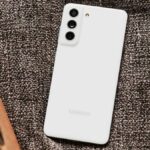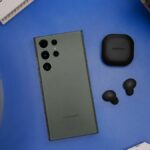Samsung just finished hosting their second ever analyst event in South Korea. Admittedly I didn’t listen to all seven of the presentations given due to time constraints, but I did download all the accompanying slides to see if I could find some juicy information. And boy oh boy, I found quite a bit.

Let’s start with what I think is the most important discovery: Samsung has confirmed they’re working on their own application processor. What does that mean? Companies like NVIDIA, Samsung, and even Apple, have traditionally licensed processors from ARM and then put them on their own chips. You’ve probably heard the terms Cortex A15 or A7 or A9, what have you. Those are all ARM designed processors which then get put into chips called Exynos, Tegra, and so on. Qualcomm doesn’t work like that, they design their own processors, things like Scorpion and Krait, which go into Snapdragon chips. Starting with with the iPhone 5, Apple has also designed their own processors, things like Swift and Cyclone.
In other words, Samsung has just said they’re going to pull a Qualcomm and an Apple and make their own core. They don’t say when it’ll come out, however, and it’s anyones guess when that’ll actually happen.

The other two important things I’ve discovered have to do with displays. In less than two months, we’re going to enter 2014, and if Samsung’s slides are to be believed, we’re going to have devices with AMOLED panels that have a pixel per inch rating of 560. The company also says we’re going to have 4K displays, in smartphones, at some point in 2015. Overkill? Never, give me sharpness or give me death.

Why is Samsung disclosing all this information? Because investors are a little spooked. While it would be ignorant to say smartphones have reached saturation levels, there is some definite slowdown in the high end segment. A theme that was repeated in Samsung’s slides was that no one is innovating as fast as they are in areas like display, memory, and chip fabrication technology.
Oh and one more thing: When it comes to flexible displays, Samsung claims they hold one out of every three patents for the technology. So if wearable computing is going to become a thing, or phones that can bend and flex, Samsung will be at the forefront of that space.




















